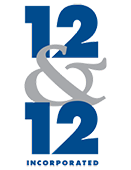
House of TIME Inc is a Transitional Housing or Halfway House,Substance Abuse Treatment Services rehab center located in Columbus, GA. This drug & alcohol rehab center based in Georgia provides Residential,Long-Term Residential as treatment service option. For House of TIME Inc reviews, ratings & other information, please read below.
House of TIME Inc. in Columbus, GA – An Overview
House of Time was founded in 1994 as a means to provide traditional and permanent supportive housing to homeless women who are unsuccessful at maintaining sobriety. The center offers treatment and accommodation for women who are above 18 and are suffering from substance addiction and mental illness. It is a Dual Diagnosis Substance Abuse Rehab and also provides shelter to women with children. The center offers the structure needed to maintain sobriety and maintains strict adherence to laws in a community-based environment.
The center ensures quality and lasting recovery for alcoholism and drugs addiction with highly qualified team members. The community welcomes women from all walks of life, races, and religious backgrounds.
TRANSITIONAL HOUSING PROGRAM
The Transitional Housing is up to twenty-four months duration program where every individual receives treatment based on the personalized treatment plan. The treatment includes extensive supportive services to prevent relapse and chronic homelessness. The center maintains a “one-stop” treatment facility which provides all the tools crucial to become sober and living independently.
House of Time ensures supportive services and enables every individual to address issues such as addiction, sexual, lack of education, physical and emotional abuse, and inadequate health care. The center also teaches life skills required for independent living.
Phased Approach to Treatment
The House of T.I.M.E. Transitional Housing Program assists in four phases. Phase one offers structured day and evening treatment, including group therapy on topics including life skills, relapse prevention, recovery principles, and addiction education. The clients also take part in six off-site AA/NA or CA meetings each week.
Phase 2 enable individuals to look for work and carry on with their minimum of six 12-step meetings a week. Women are also required to open a savings account. The last phase emphasized making clients self-supporting while continuing regular 12-step participation.
Residential manager assists in finding an appropriate location, and the inmates are taught life skills including cooking and cleaning and practice budgeting skills.
PERMANENT SUPPORTIVE HOUSING
Permanent Supportive Housing is a program designed for dually diagnosed (mental illness and substance abuse disability) homeless women who experience multiple hurdles in sustaining sobriety, employment, and housing permanency. This program has no time limit for stay and allows the individuals to live independently in their apartments within a supportive community. Every client’s personalized plan is developed during client intake, and services necessary for each individual are accessed and secured within a few days.
Services Provided
Transitional Housing Programs offers comprehensive and appropriate services are provided to each individual as per her personal needs. A personalized treatment plan is developed and followed strictly.
Permanent housing programs offer a flexible array of comprehensive services which include: Full Medical, substance abuse management and recovery, mental health, vocational and employment training, case management, money management, life skills, household establishment, and transportation.
The center house qualified staff, including LADC, residential manager, clinical coordinator, and life skills counselor. Each individual’s progress is discussed weekly by a treatment team, including staff members, Medical Director, and a Licensed Counselor.
Alcohol and Drug Services include activities and treatments designed to prevent, discourage, reduce, and eliminate substance abuse or addictive activities.
Case Management Services include arrangement, organization, monitoring, and delivery of required services to each individual. These also include individual therapy and customized treatment planning.
Education and Instructional Services include training services provided to advance knowledge, daily living skills, social skills as well as education to prevent substance abuse, community protection, and General Educational Development (GED).
Employment Services help an individual to secure employment, to acquire skills to stimulate opportunities for employment, increased earning potential, and to maintain a job.
Health-Related Services are planned to help individuals in attaining and maintaining a positive condition of health.
Information and Referral Services include services to provide information about services delivered by public and private service providers with an assessment of the individual needs to support suitable referral to these community resources.
Life Skills Training offers critical life management skills targeted to help the individual to function independently in the community. The life skills training involves household management, resources budgeting, and financial management, conflict management, shopping for food, nutrition, the use of public transportation as well as parental training.
Mental Health and Counseling Services include therapeutic processes to personal, family, situational, or occupational problems to bring about a positive resolution of the issue or improved individual functioning and situations.
Transportation Services includes the provision and arrangement of travel, its cost, and individual’ to access treatment, services, medical care, or employment.
Counseling and Follow up assistance is also primary services ensured in both programs.
- Payment Assistance (Check with facility for details)
- Transitional Housing or Halfway House
- Substance Abuse Treatment Services
- Residential
- Long-Term Residential
- Do not use medication for opioid addiction
- Medications for psychiatric disorders
- Private Organization
- State substance abuse agency
- Federal or Any Government Funding for Substance Abuse Programs
- No Payment Accepted
- Comprehensive mental health assessment
- Comprehensive substance abuse assessment
- Aftercare/continuing care
- Discharge Planning
- Treatment for non-substance abuse addiction disorder
- Individual counseling offered
- Group counseling offered
- Substance abuse education
- Health education services other than HIV/AIDS or hepatitis
- Employment counseling or training
- Smoking Permitted in Designated Area
- Nicotine replacement therapy
- Screening for tobacco use
- Smoking/tobacco cessation counseling
- Adults
- Young Adults
- Female
- Anger management
- Substance Abuse Counseling Approach
- Cognitive/behavioral therapy
- Contingency management/motivational incentive
- Contingency management/motivational incentive
- Relapse prevention
- Trauma-related counseling
- 12-step facilitation approach
- Transitional Age Young Adults
- Adult Women
- Seniors or Older Adults
- Veterans
- Military Families
- Clients Referred from the Court/Judicial System
- Persons with Co-occurring Mental and Substance Use Disorders
- Persons with HIV or AIDS
- Persons who have Experienced Sexual Abuse
- Persons who have Experienced Trauma
- Breath analyzer or blood alcohol testing
- Drug or alcohol urine screening
- HIV testing
- Screening for Hepatitis B
- Screening for Hepatitis C
- Screening for mental health disorders
- Screening for substance abuse
- STD testing
- TB screening
- Assistance with obtaining social servicest
- Case management
- Domestic violence services-family or partner
- Early intervention for HIV
- Housing services
- Mental health services
- Consumer-run (peer-support) services
- Self-help groups
- Social skills development
- Transportation assistance






Sorry, the comment form is closed at this time.